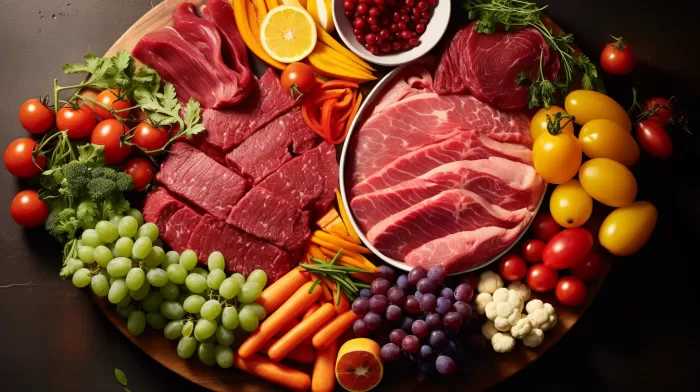Eating meat has long been associated with an increased risk of various health problems. However, many researchers now argue that the type of beef you eat plays a crucial role in determining its impact on your health. In fact, there is one type of beef that may actually help to lower your blood pressure.
The Importance of Lean Cuts
In order to reap the blood-pressure-lowering benefits of beef, it’s essential to choose lean cuts and avoid the greasy gobs of fat. A study conducted at Penn State discovered that consuming lean beef as part of a diet controlling salt intake and incorporating plenty of fruits and vegetables can help combat hypertension. This finding adds to growing evidence supporting lean beef’s place as part of a heart-healthy diet.
Penny M. Kris-Etherton, a nutrition professor at Penn State and one of the study’s researchers, explained, “This research adds to the significant evidence, including work previously done in our lab, that supports lean beef’s role in a heart-healthy diet. This study shows that nutrient-rich lean beef can be included as part of a heart-healthy diet that reduces blood pressure, which can help lower the risk for cardiovascular disease.”
DASH Diet Benefits
The Penn State research revealed that incorporating extra lean beef into the DASH (Dietary Approaches to Stop Hypertension) diet, an eating plan focused on fruits and vegetables, can help lower blood pressure. The study concluded that, “This evidence suggests that it is the total protein intake — not the type of protein — that is instrumental in reducing blood pressure, as part of a DASH-like dietary pattern.”
The DASH diet was developed by the National Heart, Lung, and Blood Institute (NHLBI) link to prevent or stop hypertension and lower high blood pressure. The goal of the diet is to encourage individuals to consume nutrient-dense foods that provide essential vitamins, minerals, and fiber. These include whole grains, fruits, vegetables, and lean protein sources. Emphasis is placed on reducing sodium intake while boosting potassium, calcium, and magnesium intake to help lower blood pressure.
Incorporating Lean Beef in a Heart-Healthy Diet
To include lean beef as part of a well-balanced, heart-healthy diet, you’ll want to select cuts with the least amount of fat. The American Heart Association link recommends the following guidelines for selecting the healthiest cuts of meat:
- Choose cuts labeled “loin” or “round.” Good examples are sirloin, tenderloin, and top round.
- Trim any visible fat before cooking the meat.
- Opt for grass-fed beef, as it often has fewer unhealthy fats and more antioxidant-rich nutrients.
- Prioritize lean protein sources like poultry and fish, but enjoy lean beef in moderation, aiming for no more than 18 ounces of cooked meat per week.
Other Ways to Lower Blood Pressure
In addition to incorporating lean beef into your diet, there are other lifestyle changes you can make to manage blood pressure. The American College of Cardiology and American Heart Association link provide the following recommendations:
- Maintain a healthy weight. Losing even a few pounds can help lower your blood pressure.
- Engage in regular physical activity. Aim for at least 150 minutes per week of moderate-intensity exercise or 75 minutes per week of vigorous-intensity exercise.
- Limit sodium intake. Aim for no more than 2,300 milligrams of sodium per day.
- Manage stress through relaxation techniques like deep breathing, meditation, and yoga.
- Limit alcohol intake. For men, this means no more than two drinks per day, and for women, no more than one drink per day.
Maintaining an overall healthy lifestyle and incorporating lean beef into a heart-healthy diet can help to lower blood pressure and reduce the risk of cardiovascular disease. So, go ahead and enjoy that juicy sirloin in moderation, knowing it can be a part of your path to better health.



